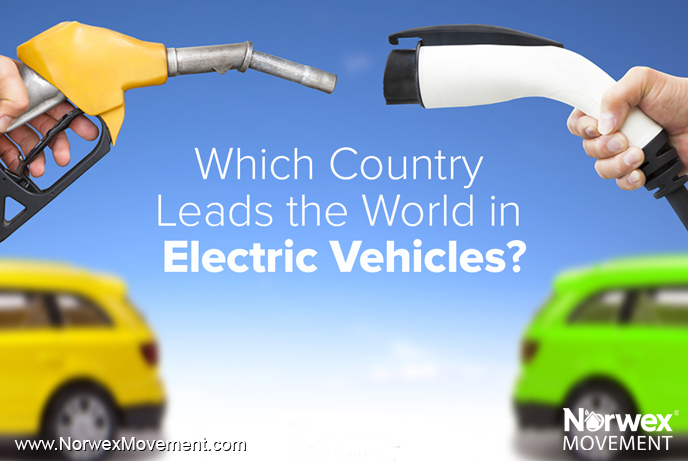

As we all come to grips with dwindling natural resources and growing air pollution concerns, alternative, sustainable energy sources are becoming a huge priority for countries around the world.
Norway is a leader in the alternative fuel movement. The country already has the largest percentage of electric vehicles on the road at 24%, the energy blog Electrek reported. After announcing a plan to completely ban cars from Oslo’s city center by 2019, it is now aiming instead to reduce sales of gas-powered cars to zero by 2025.
Instead of banning gas-powered vehicles completely, the government wants to make alternative fuel a much more attractive option. Norway will likely invest in electric car-compatible roadways and parking lots. Several new measures will be created to make owning and driving gas-powered vehicles much more difficult, while promoting zero-emissions vehicles in their place. In addition, plans for a billion-dollar network of bike highways are in the works.
But Norway isn’t the only country committed to reducing air pollution and lessening its dependency on gas. While London is investing in electric delivery vehicles and Paris is banning old cars from entering the city on weekdays, the Netherlands and India are taking more aggressive measures.
 The Dutch government is committed to reducing greenhouse emissions to 80% less than 1990 levels. The plan requires the majority of passenger cars to be run on carbon dioxide-free energy by 2050. After that, new vehicles sold in the country must be electric- or hydrogen-powered and not use any fossil fuels.
The Dutch government is committed to reducing greenhouse emissions to 80% less than 1990 levels. The plan requires the majority of passenger cars to be run on carbon dioxide-free energy by 2050. After that, new vehicles sold in the country must be electric- or hydrogen-powered and not use any fossil fuels. India wants 100% electric vehicles by 2030. India’s Road Minister Nitin Gadkari wants to sell electric vehicles without a down payment, and people would pay for the car out of the savings from switching from petroleum products.
India wants 100% electric vehicles by 2030. India’s Road Minister Nitin Gadkari wants to sell electric vehicles without a down payment, and people would pay for the car out of the savings from switching from petroleum products. The French-based commercial airline Airbus is looking at using a common algae commercially grown to make fish food as a source for both biodiesel and jet fuel. The scientists believe that producing biodiesel and jet fuel from a single algae has amazing promise for future commercialization.
The French-based commercial airline Airbus is looking at using a common algae commercially grown to make fish food as a source for both biodiesel and jet fuel. The scientists believe that producing biodiesel and jet fuel from a single algae has amazing promise for future commercialization.Want to learn more about Norway as a leader of the green movement? Check out our past blogs, Norway—One of the Greenest Countries on the Planet and Eco-Friendly Cities Around the World: Oslo, Norway.
Resources:
I am so onboard with changes, but do raise some questions that I need to research. Where does the power come from for recharging the batteries? What do you do with the batteries once they no longer accept a charge? Does it become a vicious cycle of waste and demand and dependency just in a different form?
Great article.
One thing that this article didn’t address is what do you do with the gas powered vehicles when you trade up. Recycling is very important in this process and should be done with as close to zero emissions as possible as well.
I am on board with an electric vehicle. I just wish Michigan would have more charging stations.
I agree 110% with Karla’s comments… we can’t just barge into something that appears to be “greener”.. think K cups, haha.